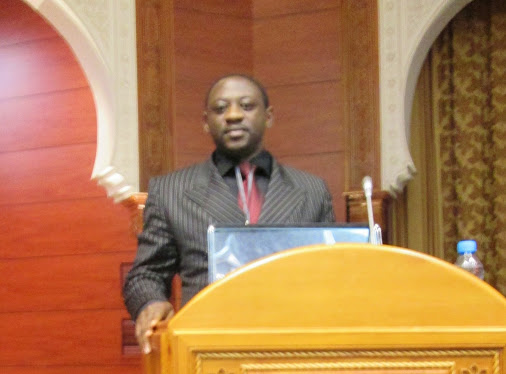On the 5th of June 2014, the International Monetary Fund (IMF) predicted that economic growth in the six-nation Central African CEMAC bloc is set to double to between 5 and 5.5 percent in 2014. According to an article by Reuters, this growth is supposed to be pivoted on the back of increased oil production.
The CEMAC zone is composed of Central African Republic, Gabon, Cameroon, Chad, Congo-Brazzaville and Equatorial Guinea. Reuters reports that five of these states produce oil, which accounts for 36 percent of the region’s Gross Domestic Product (GDP) and 87 percent of total exports. Growth reduced to around 2.5 percent in 2013 because of a substantial drop in oil output. The CEMAC zone’s central bank forecast 2014 GDP growth at 6.7 percent in March.
In an IMF statement at the end of a two-week evaluation mission, the team said “The outlook for the remainder of 2014 points to a pick-up in economic growth. Regional real GDP growth is projected at 5 to 5.5 percent, as oil production will increase. The team added that inflation is expected to remain below 3 percent.
The medium-term outlook seemed solid because of strong growth in non-oil sectors, but a projected decline in oil production was expected to bring overall growth down, observed Reuters. It is sad how states in the CEMAC zone depend on oil production to boast their GDP whereas there are sectors which can fire GDP up if harnessed such as the agricultural sector which remains under-exploited. The IMF confirmed that the deteriorating security situation due to conflict in Central African Republic and attacks by the Boko Haram Islamist group in Nigeria could also cut into growth.
The Central African region especially the CEMAC zone needs to get serious about other sectors of the economy rather than just relying on oil production. This zone has great potential in revamping the agricultural sector but has instead open room for land grabbing. Instead of ensuring that the populace in this zone benefits from vast arable farm land, governments in the CEMAC zone are giving away the land while their people languish in poverty.
Countries in the CEMAC zone still have a long way to go with respect to South-South cooperation. Rather than depending heavily on oil production to attain a 5.5 percent growth, which is not so evident, this zone needs to encourage trade amongst states in the zone and beyond. In recent weeks there have been tensions along the Gabonese and Cameroonian boarders. Both countries have accused each other of illegal poaching and trade which have led to arrests and repatriation of citizens from both states. There is need to encourage free trade among members states of this zone. Tensions amongst member states, such as that between Gabon and Cameroon will instead shrink growth in 2014 instead of boasting it.
Corruption also remains a serious reason why I remain pessimistic about the IMF’s predicted 5.5 percent growth in 2014. A recap on the Doing Business Report of 2013 and 2014 shows that states in the CEMAC zone are tailing the list when it comes to doing business. For instance, according to the AtlasFreeTrade.org initiative, Cameroon’s trade freedom ranks 128 out of 158 states and both the cost of doing business and tariffs remain extremely high. This picture mirrors itself with other states in the zone.
There is indeed high potential for states in the CEMAC zone to attain the 5.5 percent growth as predicted by the IMF. The zone is not only blessed with oil production, but has other sectors which need to be exploited. If the CEMAC zone is really serious about attaining the predicted 5.5 percent growth and more, then it is time for a policy rethink and shift. Government leaders need to also concentrate more in encouraging trade between member states as well as revamping their various agricultural systems. Government leaders need to be serious about true privatization and free trade. There is also need for the corruption canker worm to be curbed. Only such measures may project the CEMAC zone to the 5.5 percent target.
Chofor Che is an integral part of the Africanliberty’s Voice of Liberty initiative. He is also a Doctoral Law candidate at the Faculty of Law, University of the Western Cape and blogs at http://choforche.wordpress.com/



